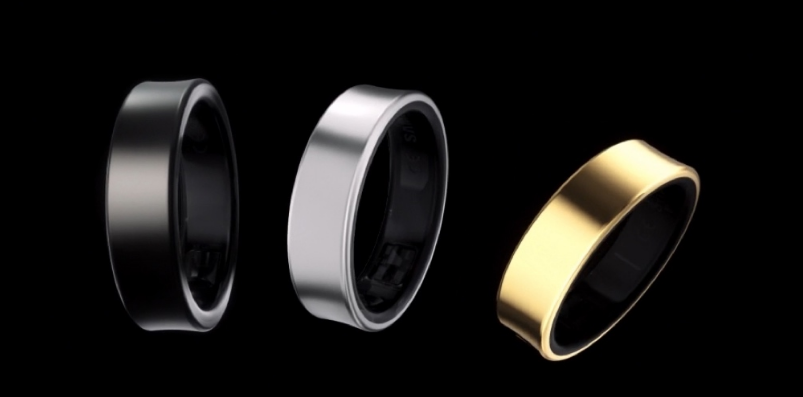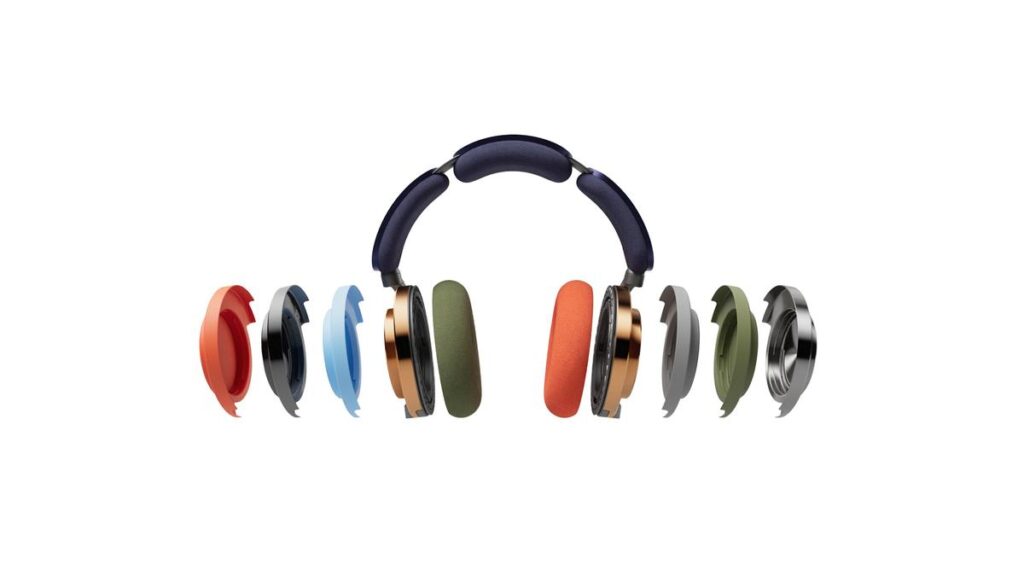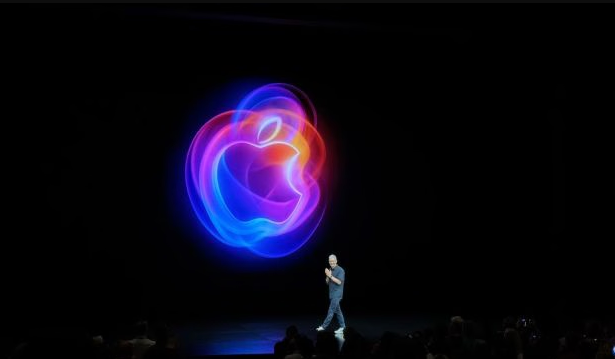Choosing a laptop can be a confusing process. Even if you’re familiar with the technical terms and know exactly what you’re looking for, it’s still challenging to find the right one. Navigating through manufacturers’ websites to locate your desired model can be frustrating. This guide aims to assist you in navigating the complex world of modern laptops. We will help you make your laptop search easier.
Contents:
1.Choose your Design
2.Choose the Operating System
3.Choose Processor
4.How much RAM you need?
5.How much storage space you need?
6.Check your Ports
7. Desired your option
1.Choosing the Design

Design:
- Consider the laptop’s intended use. If it’s for work or school, you might want a more professional-looking design. If it’s for personal use, you might prefer a more stylish or colorful design.
- Look for a laptop with a durable build quality, especially if you plan to use it on the go.
- Check if the laptop has any design features that make it easier to use, such as a backlit keyboard or a fingerprint reader.
Screen Size:
- Consider what you’ll be using the laptop for. If you plan to use it for watching movies or gaming, a larger screen size might be better.
- If you need a laptop for travel or commuting, a smaller screen size might be more convenient.
- Keep in mind that larger screen sizes can make a laptop heavier and more difficult to carry around.
- Look for a laptop with a high resolution display for better image quality.
Weight:
- Consider how often you’ll be carrying the laptop around. If you plan to use it primarily at home or in the office, weight might not be as much of a concern. If you plan to travel with it or carry it around frequently, a lighter weight might be more important.
- Keep in mind that laptops with larger screens and more powerful components tend to be heavier.
- Look for a laptop with a comfortable keyboard and touchpad, as this can make typing and navigating easier, even if the laptop is a bit heavier
2.Choose the Operating System,

Before selecting a laptop, it is crucial to determine the most suitable operating system (OS) for your needs. The OS you choose will depend on the software you require and the platforms they run on. Here is an overview of the four major computer operating systems and their strengths and weaknesses:
Windows: This reliable OS is a popular choice for running Microsoft apps like MS Office, Access, and Outlook. It offers a wide range of laptops to choose from, making it a versatile option. You can refer to our Best Laptops, Best Microsoft Surface Laptops, and Best Cheap Laptops guides for some options.
macOS: Apple’s macOS is user-friendly and tightly integrated with the company’s hardware. However, your buying options are limited to MacBooks. If you’re considering a MacBook, check out our separate guide to picking the best MacBook.
Chrome OS: If you primarily use a web browser for your laptop tasks, Chrome OS is a good choice. Chrome laptops, also known as Chromebooks, are affordable and lightweight, making them an excellent option for those on a tight budget. However, popular apps like Adobe’s Creative Suite or Microsoft Office won’t run on Chrome OS. Google recently introduced a significant upgrade called Chromebook Plus, which offers better performance, faster processors, more memory, more storage, and better video cameras. However, Android apps may not run well on Chromebooks. You can refer to our Best Chromebooks guide for more information.
Linux: If you don’t need MS Office and are willing to learn a new system, Linux is an option you can install on almost any laptop hardware. However, popular apps like MS Office and Adobe’s Creative Suite don’t support Linux. Instead, there are free, open-source alternatives like LibreOffice, Darktable (Adobe Lightroom replacement), and GIMP (Adobe Photoshop replacement). You can refer to our Best Linux Laptops guide for some of our top picks.
choosing the right OS is an essential first step in selecting a laptop. Consider the software you need to run and the platforms they support to determine the hardware you require. Each OS has its strengths and weaknesses, so choose the one that best fits your needs
3.Processor
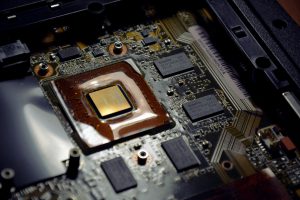
The processor is the brain of the laptop, and its performance affects the overall speed and efficiency of the device. Intel and AMD are the two main manufacturers of laptop processors. Intel’s main processors are Core i3, Core i5, Core i7, and Core i9, while AMD’s processors include Ryzen 3, Ryzen 5, Ryzen 7, and Ryzen 9. Look for a laptop with a processor that meets your needs and budget. when choosing a laptop, understanding the processor (CPU) is crucial as it affects the laptop’s performance..
Intel and AMD use cryptic strings of numbers and letters to indicate the capabilities and generation of their processors. For example, an Intel Core i7-1355U indicates a 13th-generation chip with a performance level of 55 and a U designation for power efficiency. AMD Ryzen 5 7600X indicates a 7th-generation chip with a performance level of 6 and an X designation for high performance.
The type of processor affects the laptop’s performance, with Intel i5 and Ryzen 5 being sufficient for most users. However, an Intel i7 or Ryzen 7 may be necessary for more demanding tasks like video editing or gaming. Intel i3 and Ryzen 3 processors are typically less powerful and may not be suitable for Windows users. the processor also affects battery life, with Y series chips optimized for battery life and H and HX chips optimized for performance. AMD laptops typically do not have Thunderbolt 4 ports, which are used for high-speed data transfer.
Latest in Intel Processor:
- The latest Intel processors are the 14th Generation Intel Core desktop processors, which were launched on October 16, 2023. The new processors are available at retailers and OEM partner systems starting Oct. 17, 2023. The new lineup includes six unlocked desktop CPUs for enthusiasts: i9-14900K/KF, i7-14700K/KF and i5-14600K/KF. These processors deliver world’s fastest desktop frequencies, the world’s best desktop experience for enthusiasts and unparalleled overclocking for incredible performance.
- The new Intel Core 14th Gen desktop processors are powered by Intel’s advanced performance hybrid architecture, which combines two core microarchitectures, Performance-cores (P-cores) and Efficient-cores (E-cores), on a single processor die. This architecture was first introduced on 12th Gen Intel Core processors. Select 12th Gen and newer Intel Core processors do not have performance hybrid architecture, only P-cores or E-cores, and may have the same cache size.
- The flagship i9-14900K is the world’s fastest desktop processor with 6 GHz speeds right out of the box. The i7-14700K arrives with 20 cores and 28 threads thanks to four more Efficient-cores (E-cores) compared with the prior generation. Intel’s Extreme Tuning Utility (XTU) now features the new AI Assist feature, bringing one-click AI-guided overclocking to select unlocked Intel Core 14th Gen desktop processors.
- These new processors are designed to provide the compute performance enthusiasts need without compromising user workflow. They offer faster clock speeds, improved tuning and optimization features, broad memory support for both DDR4 and DDR5 memory modules, and support for best-in-class wired and wireless connectivity, including discrete Intel Wi-Fi 7 (5 Gig) support.The Intel Core 14th Gen desktop processors provide the world’s best desktop experience for enthusiasts, delivering the compute performance, platform features, and memory support needed for demanding workloads. They are compatible with existing 600/700-series motherboards, making it easy for users to upgrade to the latest generation of Intel processors
Intel and AMD are the main manufacturers, with Intel’s Core i5 and AMD’s Ryzen 5 being sufficient for most users. The type of processor affects the laptop’s performance and battery life, with more powerful processors necessary for demanding tasks
Latest in AMD Processor:
- The latest AMD processors are the Ryzen 7000 series, which were announced in late 2023 and released in early 2024. These processors are based on the Zen 4 architecture and are manufactured using a 5nm process, making them AMD’s most advanced CPUs to date.
- The Ryzen 7000 series includes several models, including the Ryzen 9 7950X, Ryzen 9 7900X, Ryzen 7 7700X, and Ryzen 5 7600X. These processors offer significant improvements in performance and energy efficiency compared to their predecessors, thanks to the new architecture and manufacturing process.
- The Ryzen 9 7950X is the flagship model of the series, featuring 16 cores and 32 threads, with a base clock speed of 4.5 GHz and a boost clock speed of up to 5.7 GHz. It also includes 80MB of total cache, making it ideal for demanding workloads such as gaming, content creation, and productivity applications.
- The Ryzen 9 7900X is another high-performance model, featuring 12 cores and 24 threads, with a base clock speed of 4.7 GHz and a boost clock speed of up to 5.6 GHz. It also includes 76MB of total cache, making it a great choice for gamers and content creators who need fast and responsive performance.
- The Ryzen 7 7700X is a mid-range model, featuring 8 cores and 16 threads, with a base clock speed of 4.8 GHz and a boost clock speed of up to 5.5 GHz. It also includes 40MB of total cache, making it a great choice for productivity applications and gaming.
- The Ryzen 5 7600X is an entry-level model, featuring 6 cores and 12 threads, with a base clock speed of 4.9 GHz and a boost clock speed of up to 5.4 GHz. It also includes 38MB of total cache, making it a great choice for budget-conscious consumers who need reliable and fast performance for everyday tasks.
Graphics Card:
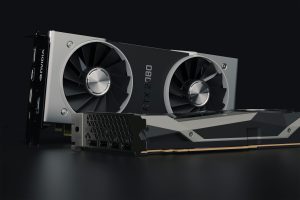
What is Graphic card? if you need this?
If you plan to use your laptop for gaming, video editing, or 3D modeling, you’ll need a dedicated graphics card. NVIDIA and AMD are the two main manufacturers of laptop graphics cards. Look for a laptop with a graphics card that meets your needs and budget.
A graphics card, also known as a video card or GPU (Graphics Processing Unit), is a hardware component in a computer that is responsible for rendering images and videos. It is a specialized processor designed to handle the complex calculations required for rendering graphics and displaying them on a monitor.
Here are the best graphics cards for gaming, from high-end to budget solutions:
- Nvidia GeForce RTX 4090 Laptop GPU – The fastest laptop graphics card currently available, but also one of the most expensive. It offers excellent performance in both rasterization and ray tracing games.
- AMD Radeon RX 7900M – The fastest laptop graphics card from AMD, offering excellent performance in rasterization games and competitive performance in ray tracing games. It’s also more affordable than the RTX 4090 Laptop GPU.
- Nvidia GeForce RTX 4080 Laptop GPU – A step down from the RTX 4090 Laptop GPU, but still offers excellent performance in both rasterization and ray tracing games. It’s also more affordable than the RTX 4090 Laptop GPU.
- AMD Radeon RX 7800M – A high-performance laptop graphics card from AMD that offers excellent performance in rasterization games and competitive performance in ray tracing games. It’s also more affordable than the RTX 4080 Laptop GPU.
- Nvidia GeForce RTX 3060 Laptop GPU – A budget-friendly laptop graphics card from Nvidia that offers excellent performance in 1080p and 1440p gaming. It also supports ray tracing, although its performance in ray tracing games is not as good as the more expensive options.
- AMD Radeon RX 6700M – A budget-friendly laptop graphics card from AMD that offers excellent performance in 1080p and 1440p gaming. It also supports ray tracing, although its performance in ray tracing games is not as good as the more expensive options.
Choosing the Right RAM for Your Needs:
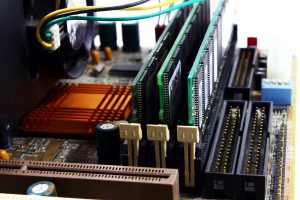
Random Access Memory (RAM) is a one of the most important component in laptops, serving as volatile memory that provides quick access to data for the processor. It plays a vital role in multitasking, allowing the system to run multiple applications simultaneously. The amount and speed of RAM significantly impact a laptop’s performance and responsiveness
Whether you’re a casual user, a creative professional, or a gaming enthusiast, selecting the right RAM is crucial. We’ll delve into factors like capacity, speed, and compatibility, providing insights to help you make an informed decision that aligns with your computing requirements.
*We Suggest to choose minimum 4GB RAM for the laptops for improved performance.
Role and Evolution of RAM: From DDR to DDR4 and Beyond.,
Think of RAM as a workspace for your computer. The more RAM your system has, the more applications and tasks it can handle simultaneously without slowing down. From running your operating system to launching web browsers, games, and creative software, RAM is the digital playground where everything comes to life.
RAM technology has seen remarkable progress over the years. We’ve transitioned from DDR (Double Data Rate) to the current standard, DDR4. Each iteration brings improvements in speed, efficiency, and capacity. DDR4, with its higher data transfer rates and lower power consumption, has become the staple in modern laptops and desktops.
Laptop RAM faces unique challenges, balancing performance with energy efficiency. LPDDR (Low Power DDR) variants, such as LPDDR4X, are designed specifically for portable devices, ensuring optimal power consumption without compromising on speed.
Future Trends in RAM:
Advancements in non-volatile RAM (NVRAM) and DDR5 technology are on the horizon, promising even faster data transfer rates and increased efficiency. As technology continues to evolve, future laptops are likely to incorporate these innovations for an enhanced user experience.
When selecting a laptop, paying attention to the type, storage capacity, and speed of the Random Access Memory (RAM) is essential to match your particular requirements, be it for everyday computing tasks, creative projects, or gaming. It is important to keep up-to-date with the most recent RAM technologies to guarantee that your laptop remains efficient and prepared for future software and application updates.
Storage:

There are two main storage devices available in the current market one is HDD (Hard Disk Drive) another one is SSD (Solid State Drive)
In the current market, the predominant choice for laptops is a solid-state drive (SSD), although some budget-friendly laptops still incorporate traditional spinning drives. It’s advisable to avoid the latter and opt for an SSD if your budget permits, ideally with a capacity of at least 256 GB.
SSDs bring notable advantages in speed, especially when equipped with an NVMe (Non-Volatile Memory Express) connection. This modern interface facilitates rapid data transfer, outpacing the older SATA standard. Some laptops employ a dual setup, featuring an SSD with NVMe for the operating system and an older SATA drive for additional file storage. This configuration aims to strike a balance between speed and cost-effectiveness.
For those navigating the landscape of budget laptops, an alternative storage option is eMMC (Embedded MultiMediaCard). Although still classified as an SSD, eMMC differs from NVMe and PCIe SSDs. The “embedded” nature of eMMC implies that it is soldered directly onto the motherboard, restricting the possibility of future upgrades. Additionally, eMMC tends to offer slower speeds, comparable to traditional SATA-based spinning drives. While adequate for light-duty tasks like web browsing and basic office applications, it may prove less optimal for more resource-intensive operations.
Devices like the Surface Go series showcase that capable laptops can leverage eMMC drives, especially in their more affordable configurations. Nevertheless, it’s crucial to consider the limitations, such as the inability to upgrade storage capacity.
The recommended minimum storage capacity is 256 GB, ensuring ample space for various applications. Whether you heavily rely on cloud storage, use Chromebooks, or plan to install games and software, having sufficient storage avoids potential constraints. This foresight is particularly valuable for accommodating future needs and ensuring a smooth computing experience.
Battery Performance:
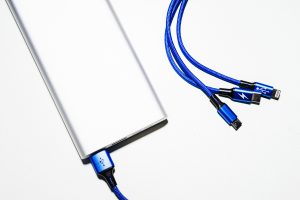
If you plan to use your laptop on the go, you’ll want a laptop with a long battery life. Look for a laptop with at least 8 hours of battery life, but if you plan to use your laptop for extended periods without access to power, consider getting a laptop with a larger battery.
batteries have come a long way in terms of capacity, longevity, and charging speed. The latest laptop batteries use advanced chemistries such as Lithium-ion polymer (LiPo) and Lithium-ion (Li-ion) that offer higher energy density, longer life, and faster charging times. Some of the latest laptops come with batteries that can last up to 20 hours on a single charge.
Quick Charging Technology: Quick charging technology is becoming increasingly popular in laptops. It allows users to charge their laptops up to 80% in just 30-60 minutes. This is achieved through the use of advanced charging circuits, high-capacity batteries, and intelligent power management systems. Some of the latest laptops with quick charging technology include the Dell XPS 13, HP Spectre x360, and Lenovo ThinkPad X1 Carbon.
Battery Care: To ensure the longevity of your laptop battery, it’s important to follow some best practices. These include avoiding deep discharges, keeping the battery level between 20% and 80%, and avoiding exposure to extreme temperatures. It’s also a good idea to calibrate your battery every few months to ensure accurate battery level readings.
Battery Replacement: If your laptop battery is no longer holding a charge, it may be time to replace it. Most laptop manufacturers offer replacement batteries for their laptops. It’s important to use a genuine replacement battery to ensure compatibility and safety.
In summary, the latest laptop batteries offer higher capacity, longer life, and faster charging times. Quick charging technology is becoming increasingly popular in laptops, allowing users to charge their laptops up to 80% in just 30-60 minutes. To ensure the longevity of your laptop battery, it’s important to follow some best practices such as avoiding deep discharges and keeping the battery level between 20% and 80%. If your laptop battery is no longer holding a charge, it may be time to replace it with a genuine replacement battery.
Check the Ports:
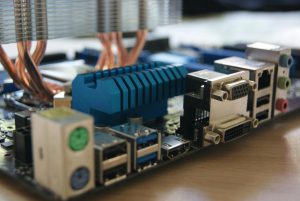
When shopping for a new laptop, it’s important to consider the ports it has available. Here are some must-have ports for laptops:
USB-C: This is a versatile port that can be used for charging, data transfer, and connecting to external displays. Look for a laptop with at least one USB-C port that supports Thunderbolt 3 or 4 for the best performance.
USB-A: While USB-C is becoming more common, many accessories still use the older USB-A standard. Having at least one USB-A port on your laptop can be helpful for connecting older devices.
HDMI: If you plan to connect your laptop to an external monitor or TV, an HDMI port is a must. It’s a common standard that’s supported by most displays.
Ethernet: While Wi-Fi is convenient, wired Ethernet can provide faster and more reliable internet connections. Look for a laptop with an Ethernet port if you need a fast and stable internet connection.
Headphone jack: While many laptops are moving towards USB-C audio, a headphone jack can still be useful for connecting wired headphones or speakers.
SD card reader: If you work with cameras or other devices that use SD cards, a built-in SD card reader can be a convenient way to transfer files.
Security slot: A security slot can be useful for attaching a lock to prevent your laptop from being stolen.
It’s worth noting that not all laptops will have all of these ports, and some may have additional ports like DisplayPort or VGA. Consider your specific needs and use case when evaluating which ports are most important for your laptop.
Finally Fix your budget and bought your suitable laptop, hope above topics will help you to choose the best laptop for your need!



